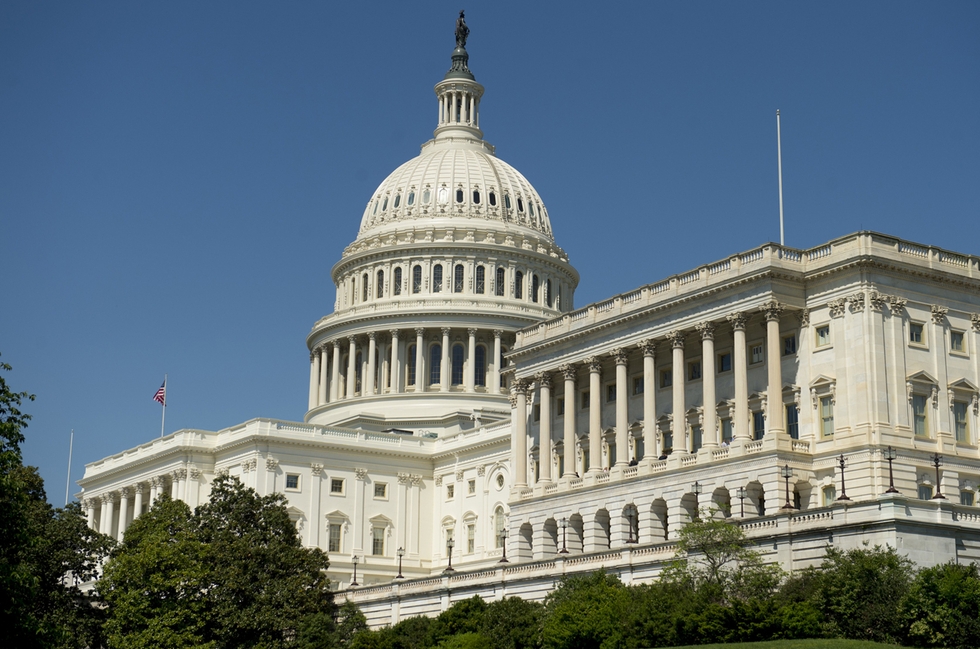US Senate moves ahead with Yemen motion, while House blocks similar effort

A motion to end the United States' support for a Saudi-led coalition in Yemen cleared a second major hurdle in the US Senate on Wednesday, while the US House of Representatives blocked a similar measure only a few hours earlier.
In a 60-39 vote on Wednesday afternoon, US senators moved forward with a motion to end Washington's assistance to Saudi forces fighting in the war-torn country.
The procedural vote is widely seen as another rebuke of US President Donald Trump's unwavering support for Saudi Arabia in the face of the devastation in Yemen and the recent murder of Saudi journalist Jamal Khashoggi.
"The time is long overdue for the United States to stop following the lead of Saudi Arabia," US Senator Bernie Sanders, one of the bipartisan co-sponsors of the resolution, said on Twitter ahead of Wednesday's vote.
"The Senate must reassert its constitutional authority and vote today to end our support for this unauthorised, unconstitutional and disastrous Saudi-led war in Yemen."
Saudi Arabia launched a military operation in Yemen in 2015 to root out the country's Houthi rebels and restore the kingdom's ally, Yemeni President Abd Rabbuh Mansour Hadi, to power. The US military provides intelligence and logistic support to Saudi forces, and up until recently, it was also assisting with the mid-air refuelling of Saudi jets.
The Senate successfully passed a first, procedural vote on the Yemen resolution late last month.
The procedural vote on Wednesday helps the motion overcome a second hurdle, but the Senate must still vote on the resolution's contents. It remained unclear when that vote would take place.
A bill must pass both chambers of Congress before being presented to the president to be signed into law. The president can veto the bill, but Congress can override the president's objection by a two-thirds vote both in the House and the Senate.
House blocks similar Yemen measure
Earlier on Wednesday, in a 206-203 vote in the US House of Representatives, lawmakers narrowly passed a provision to prevent the application of parts of the War Powers Resolution before the end of the chamber's current term at the start of 2019.
The War Powers Resolution gives Congress the power to withdraw US involvement from wars they have not authorised.
That vote effectively ended a similar push by some Democrats in that chamber of Congress to stop US military assistance to the Saudi-led coalition.
"We need to speak up and be clear that our military should not be aiding Saudi Arabia in this horrific war," said Democratic Congressman Ro Khanna, who introduced the House resolution, in a video posted online before Wednesday's vote.
The Yemen provision was attached to an unrelated farm bill on Wednesday, a move that drew criticism from US lawmakers who accused Republicans of seeking to shield Trump from criticism over his support for Saudi Arabia.
"In the middle of our debate of the farm bill, they slipped a provision that would keep us from considering any action in Yemen," Democratic Congresswoman Bonnie Watson Coleman said in a videotaped statement.
"Republicans are tripping over themselves to insulate the president from his wrongheaded decisions - in this case, his too cosy relationship with Saudi Arabia."
Republican lawmakers similarly slipped a Yemen provision into a House bill about wolves last month in order to derail efforts to end US involvement in Yemen.
Before the vote, Khanna said the war in Yemen is not only a humanitarian issue, but it also goes against Washington's strategic interests.
"The Saudis are actually aligned with al-Qaeda in fighting the Houthis. It makes no strategic sense," Khanna said. "And we have another generation growing up in Yemen seeing American missiles taking the lives of their family members. That's not making us safer."
The war in Yemen has killed tens of thousands of people, a research group recently said, while also causing a cholera outbreak and bringing the country to the verge of famine.
Democrats have highlighted the urgency of ending the conflict. Republicans say Democrats can reintroduce the Yemen resolution when they become a majority in the House in January.
New MEE newsletter: Jerusalem Dispatch
Sign up to get the latest insights and analysis on Israel-Palestine, alongside Turkey Unpacked and other MEE newsletters
Middle East Eye delivers independent and unrivalled coverage and analysis of the Middle East, North Africa and beyond. To learn more about republishing this content and the associated fees, please fill out this form. More about MEE can be found here.



